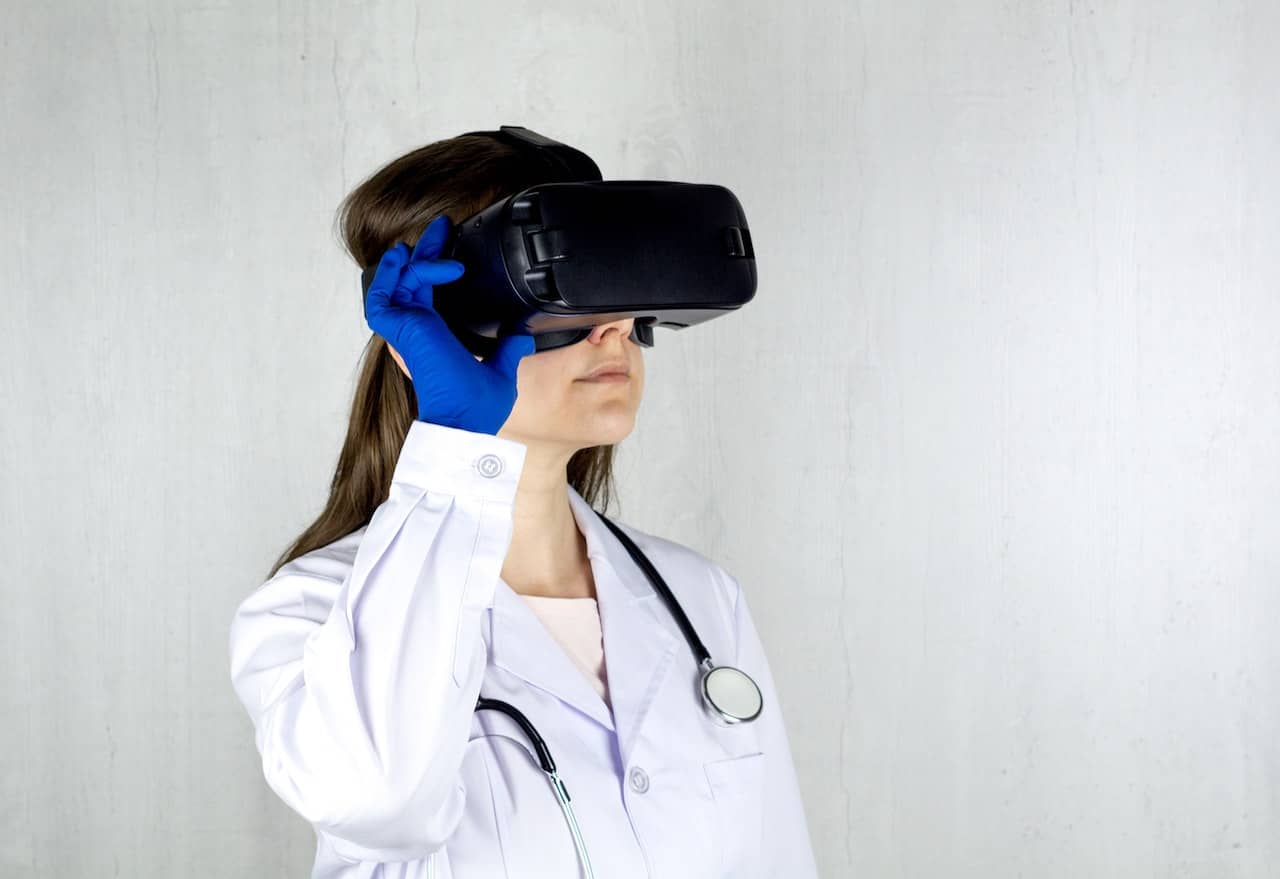In the fast-evolving landscape of modern medicine, technology stands as a sentinel, guarding against the looming spectre of clinical negligence. The introduction of Artificial Intelligence (AI) into healthcare has ignited a fervent debate: Can AI truly prevent errors in the clinical setting? As we navigate the intricate web of technology and clinical negligence, we’ll explore the possibilities, benefits, and limitations of AI in healthcare.
The Crucial Question: Can AI Reduce Medical Errors?
Imagine a bustling hospital room, where lives hang in the balance and every decision is critical. In such a high-stakes environment, human errors can be devastating. Clinical negligence, while often unintentional, can lead to patient harm or even death. This sobering reality underscores the pressing need for innovative solutions that can minimise these errors.
Artificial Intelligence, an amalgamation of algorithms and machine learning, has emerged as a promising contender in this quest for safer healthcare. Its potential to mitigate clinical negligence is a topic of substantial interest, both among medical professionals and the general public.
The Problems AI Solves in Healthcare
AI in healthcare is not a silver bullet, but it does offer a repertoire of solutions to long-standing problems.
Early Diagnosis and Treatment
AI can dramatically improve early diagnosis by analysing vast datasets of medical records, lab results, and patient histories. It can detect subtle patterns and anomalies that a human physician might miss. Take, for instance, the case of breast cancer. Mammograms are an essential tool for early detection, but they are not infallible. AI algorithms can enhance the accuracy of mammogram readings, flagging suspicious findings that a radiologist might overlook.
Medication Errors
Medication errors, including incorrect dosages and drug interactions, pose significant risks in healthcare. AI systems can cross-reference a patient’s medical history, allergies, and current medications to ensure that a prescribed drug is both safe and effective. These systems can also alert healthcare providers to potential contraindications or adverse reactions, thereby minimising the chances of medication-related negligence.
Surgical Precision
Surgical errors can have catastrophic consequences. AI-assisted surgery, or robotic surgery, allows for greater precision and control during procedures. A surgeon can utilise a robotic system, guided by AI, to perform intricate surgeries with minimal invasiveness. These technologies reduce the chances of complications, thereby diminishing the likelihood of clinical negligence stemming from surgical mishaps.
Predictive Analytics
AI’s analytical prowess shines in predictive analytics. It can predict patient deterioration, helping healthcare providers make timely interventions. For instance, an AI system can monitor a patient’s vital signs and recognize signs of imminent cardiac arrest before they become apparent to a human observer. By alerting the healthcare team, AI empowers them to act promptly and prevent a potential catastrophe.
Resource Management
Overcrowded emergency rooms and understaffed units can lead to clinical negligence due to the inability to provide timely care. AI can optimise resource allocation, ensuring that patients receive attention based on the urgency of their condition. This intelligent management enhances the overall quality of care and mitigates the risk of negligence caused by systemic issues.
Limitations of AI in Healthcare
While AI offers immense potential in healthcare, it is not without its challenges and limitations.
Data Privacy and Security
The vast amounts of data required to train AI systems can pose significant privacy concerns. Patient health records are sensitive, and safeguarding them against breaches and misuse is paramount. Ensuring the ethical and secure handling of patient data remains a formidable challenge.
Interpretation of Complex Cases
AI excels at processing structured data but can struggle with complex, nuanced cases. Diagnosing rare diseases or providing personalised treatment recommendations for uncommon conditions remains a task best suited to experienced human physicians.
Ethical Dilemmas
AI decisions are only as good as the data they are trained on, and data can carry biases. If AI algorithms are inadvertently trained on biassed datasets, they may perpetuate healthcare disparities, leading to ethical dilemmas and potential negligence in the form of unequal care.
Dependence on Technology
Overreliance on AI can lead to a diminishment in medical skills. Healthcare professionals may become overly dependent on AI systems, potentially leading to clinical negligence when the technology fails or misguides.
The Human Touch
While AI can significantly reduce the risk of clinical negligence in many areas, it’s essential to remember that healthcare is ultimately a deeply human endeavour. AI should complement, not replace, the skills and judgement of healthcare professionals.
In the UK, medical practitioners remain at the forefront of healthcare. AI is a tool in their arsenal, a formidable ally in the battle against clinical negligence. Physicians, nurses, and other healthcare providers bring empathy, compassion, and a nuanced understanding of patients’ needs. These qualities are indispensable in providing holistic care and forging the essential doctor-patient relationship.
AI can process data and flag potential issues, but it cannot offer the warmth of human interaction. When a patient faces a life-altering diagnosis, they often seek comfort and guidance from a compassionate healthcare professional. The empathetic touch of a nurse or the reassuring words of a doctor can ease the emotional burden of medical conditions.
Making a Clinical Negligence Claim with National Claims
At National Claims, we understand that medical errors can have profound consequences, and we are committed to helping those affected seek justice. If you believe you or a loved one has been a victim of clinical negligence, our team of experienced solicitors is here to guide you through the claims process.
Our approach is rooted in compassion and dedication to securing the best outcome for our clients. We offer expert legal advice, review your case, and provide the support you need during what can be a challenging time. National Claims works diligently to hold healthcare providers accountable for clinical negligence, ensuring that victims receive the compensation they deserve.
Our team recognises that the introduction of AI in healthcare has the potential to reduce clinical negligence, but it does not eliminate the past cases of negligence that have already occurred. We understand that patients have a right to quality care and, in cases where that right has been compromised, we are here to help.
Future Possibilities
The journey towards reducing clinical negligence through AI is ongoing, and the future is rife with possibilities. As technology advances and AI systems become more sophisticated, we can expect even greater integration of AI into healthcare.
AI for Preventative Care
AI has the potential to shift the focus from reactive to preventive healthcare. By analysing a patient’s history and predicting their future health risks, AI can enable early interventions and lifestyle adjustments. This proactive approach could significantly reduce clinical negligence by addressing issues before they become critical.
AI for Mental Health
Mental health care often lags behind physical health care in terms of accessibility and resources. AI-driven chatbots and virtual therapists can provide mental health support, reaching those in need even in remote areas. This expansion of mental health resources can help prevent negligence in the form of untreated mental health conditions.
AI for Elderly Care
As the UK’s population ages, there is an increasing need for elderly care. AI can assist in monitoring and providing care for the elderly, ensuring their safety and well-being. This proactive approach can mitigate the risks associated with clinical negligence in elderly care facilities.
Continuous Learning
AI systems continuously learn and adapt. As they process more data and receive feedback, they become more refined in their decision-making. The more AI systems are integrated into healthcare, the better they become at reducing clinical negligence through accurate diagnoses and treatment recommendations.

Conclusion
In the complex realm of healthcare, the integration of technology and clinical negligence is a multifaceted issue. AI, with its potential to reduce errors and enhance patient care, is a welcome addition to the healthcare landscape. The United Kingdom, with its storied National Health Service and dedication to medical excellence, is at the forefront of embracing AI in healthcare.
AI’s journey to prevent clinical negligence is ongoing. It is a tool in the hands of skilled healthcare professionals, a partner in the quest for safer and more effective care. While AI can provide data-driven insights and flag potential issues, it is the human touch, empathy, and medical expertise that remain central to patient well-being.
As technology continues to advance, the potential for AI in healthcare is boundless. From preventative care to mental health support and elderly care, AI is set to play an increasingly vital role in reducing clinical negligence and improving patient outcomes. The future of healthcare in the UK and beyond promises to be a harmonious blend of human expertise and artificial intelligence, striving for the highest standards of care and patient safety. At National Claims, we are here to help those affected by clinical negligence seek the justice and compensation they deserve.
Contact us to speak to one of our claims specialists and they will help you start your claim today.
Click below to see why we are one of the most trusted claims management companies in the UK.

We’re proud of our excellent customer reviews
We thrive on delivering exceptional service and ensuring our clients’ satisfaction. Don’t just take our word for it. Check out some of our independent reviews to see what our clients have to say.
Excellent

This firm is excellent, they sorted out my car pay out and injury claim very fast, they always communicate with you all the time.

My accident case was dealt with confidence and with great result of the outcome, especially James kept me informed all the time.

I was very impressed at the way my inquiry was treated. I was listened to attentively and everything I needed to know was explained to me.






